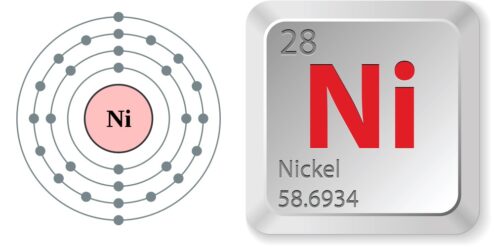Nickel is a naturally occurring element that can be found in various foods. While it’s essential in trace amounts for the human body, excessive intake can lead to health issues. One of the foods that people often wonder about in terms of nickel content is potatoes. This article aims to provide a comprehensive analysis of the nickel content in potatoes and its impact on human health.
Understanding the Nickel Content in Foods
Nickel is a trace mineral that is present in the soil and water, and thus, it makes its way into the food chain. It is found in a wide variety of foods, including grains, vegetables, fruits, and even some processed foods. The nickel content in foods can vary greatly depending on the soil and water where the food is grown. Foods grown in nickel-rich soil will naturally have a higher nickel content. Moreover, processed foods may contain higher amounts of nickel due to the use of nickel-containing equipment during production.
The amount of nickel in a particular food does not necessarily determine its impact on health. Instead, the bioavailability of nickel, or the extent to which it is absorbed in the body, is a more critical factor. Certain cooking methods can also affect the nickel content of foods. For instance, boiling can reduce the nickel content, while frying and baking may increase it.
Are Potatoes High in Nickel? A Detailed Analysis
Potatoes, like many other vegetables, do contain nickel. However, the amount of nickel in potatoes is generally low compared to other foods. According to the United States Department of Agriculture (USDA), the average nickel content in potatoes is about 0.1 mg/kg, which is considerably lower than in foods like cocoa and chocolate, nuts and seeds, and certain types of fish and shellfish.
The nickel content in potatoes can vary depending on the type of potato and where it is grown. For example, potatoes grown in nickel-rich soil may have higher nickel content. Also, the cooking method can influence the nickel content. Boiling potatoes can reduce their nickel content, while baking or frying may increase it.
The Role of Nickel in Human Health
Nickel plays a vital role in the human body in trace amounts. It is involved in various metabolic processes and contributes to the proper functioning of the immune system. However, excessive intake of nickel can lead to health issues, including skin allergies, lung infections, and even heart disorders.
People who are allergic to nickel may experience symptoms like skin rashes and inflammation when they consume high-nickel foods. Moreover, long-term exposure to high levels of nickel can lead to chronic conditions like lung cancer and cardiovascular diseases. Therefore, it is essential to monitor and regulate nickel intake, especially for individuals who are sensitive to it.
How to Reduce Nickel Intake from Potatoes
While potatoes are not a significant source of nickel, you can further reduce the nickel content by choosing the right cooking methods. Boiling potatoes can help to leach out the nickel, reducing its content. Also, peeling potatoes before cooking can help to remove the outer layer, which may contain higher amounts of nickel.
It’s also important to note that the nickel content in potatoes can vary depending on the type of potato and where it is grown. Therefore, choosing potatoes grown in low-nickel soil can help to reduce nickel intake. Moreover, consuming a balanced diet with a variety of foods can help to prevent excessive intake of nickel from any single food source.
Expert Tips for a Low-Nickel Diet
If you are sensitive to nickel or have been advised to follow a low-nickel diet, there are several strategies you can adopt. First, try to limit your intake of high-nickel foods like cocoa and chocolate, nuts and seeds, and certain types of fish and shellfish. Instead, opt for foods that are naturally low in nickel, such as dairy products, meat, poultry, and eggs.
Second, pay attention to your cooking methods. Boiling foods can help to reduce their nickel content, while frying and baking may increase it. Also, consider using stainless steel or glass cookware, as nickel can leach from nickel-plated cookware into food.
Case Study: Impact of High-Nickel Foods on Health
There have been numerous studies on the impact of high-nickel foods on health. One such study published in the Journal of Allergy and Clinical Immunology found that individuals with nickel allergy who consumed a high-nickel diet experienced more severe symptoms compared to those on a low-nickel diet.
Another study published in the Environmental Health Perspectives found that long-term exposure to high levels of nickel could lead to lung cancer and cardiovascular diseases. These studies highlight the importance of monitoring and regulating nickel intake, especially for individuals who are sensitive to it.
While potatoes do contain nickel, they are not a significant source of this mineral. However, for individuals who are sensitive to nickel, it is essential to monitor and regulate their nickel intake. This can be achieved by choosing foods that are naturally low in nickel, adopting the right cooking methods, and maintaining a balanced diet.
Per approfondire:
- United States Department of Agriculture (USDA): Provides comprehensive data on the nutrient content of various foods, including nickel.
- Journal of Allergy and Clinical Immunology: Publishes research on the impact of high-nickel foods on individuals with nickel allergy.
- Environmental Health Perspectives: Publishes research on the long-term health effects of exposure to high levels of nickel.
- National Institutes of Health (NIH): Provides information on the role of nickel in human health and its potential health risks.
- American Academy of Dermatology: Provides information on nickel allergy, including its symptoms and management strategies.


